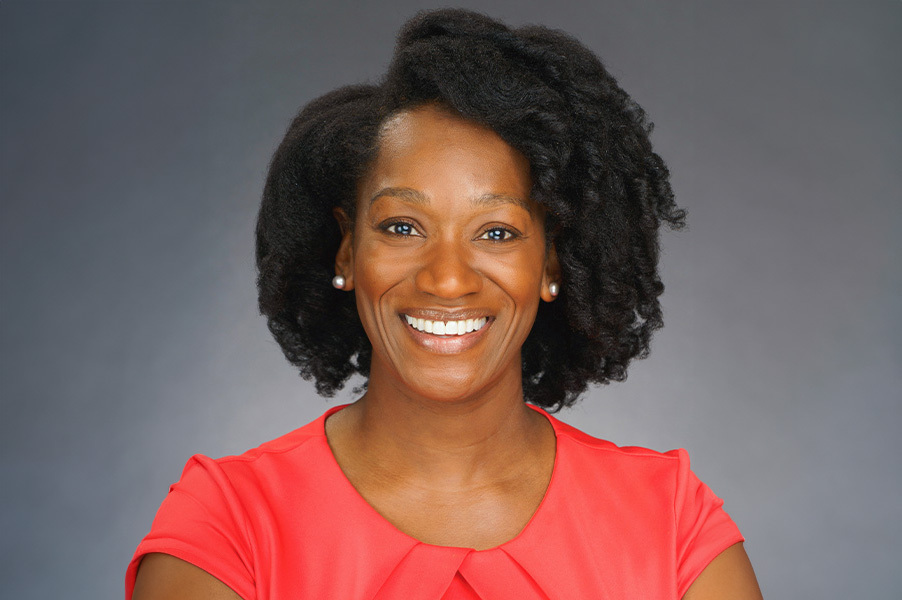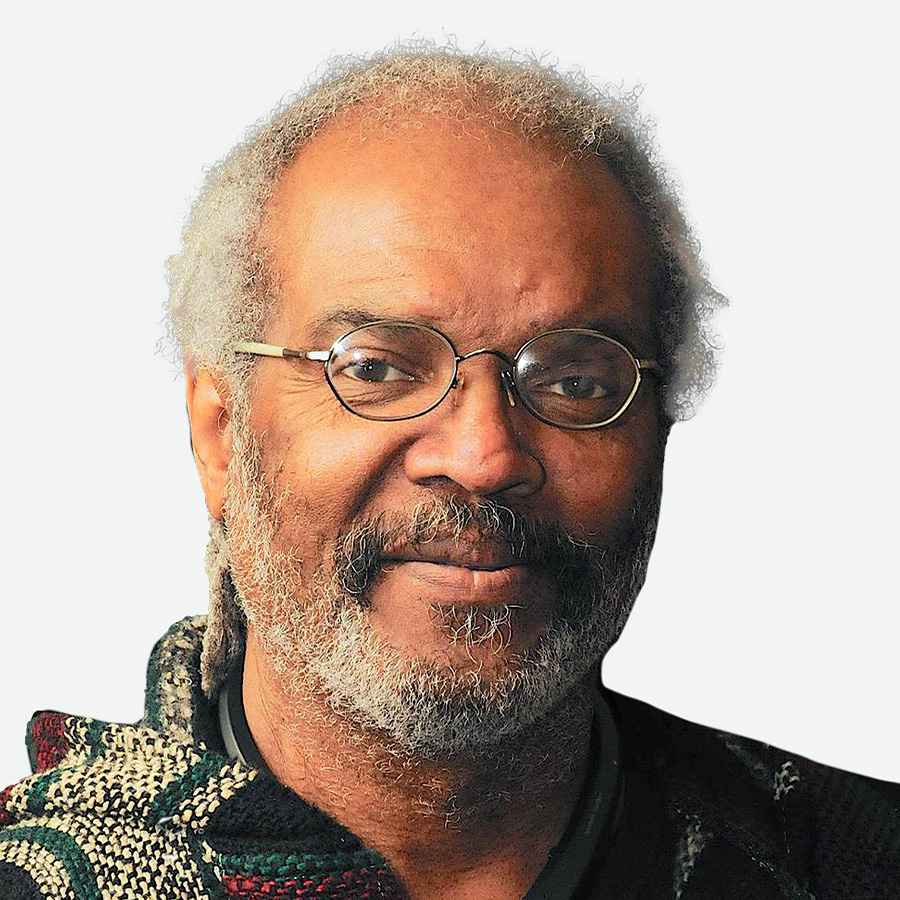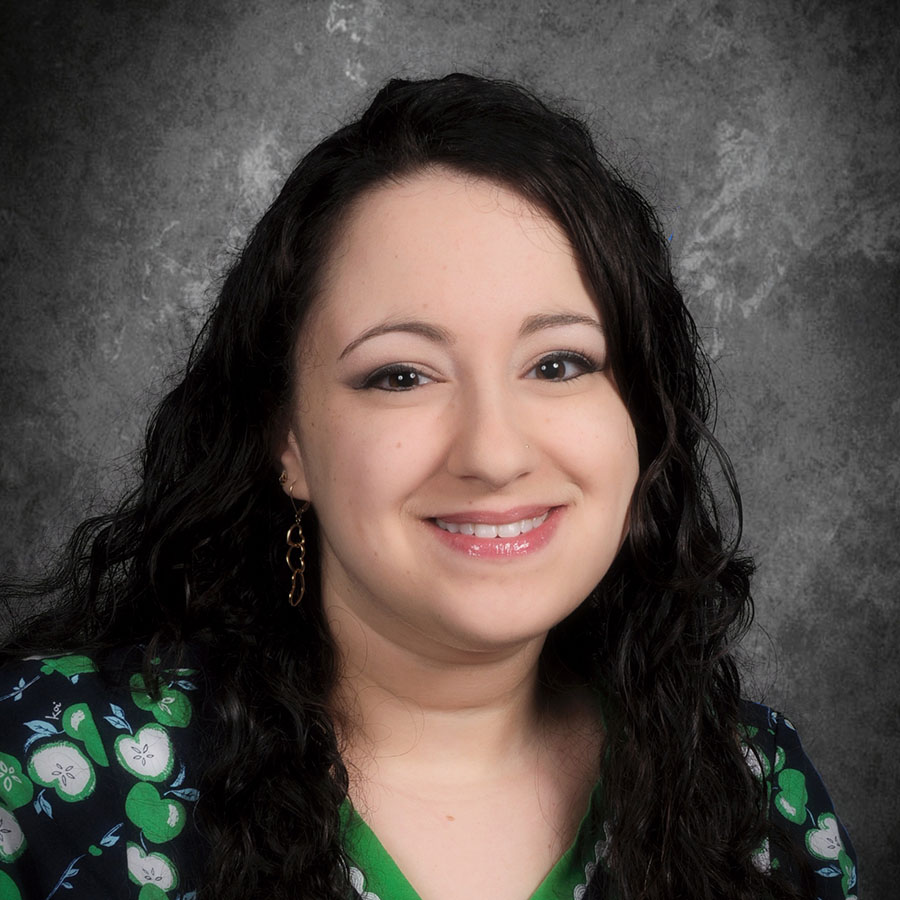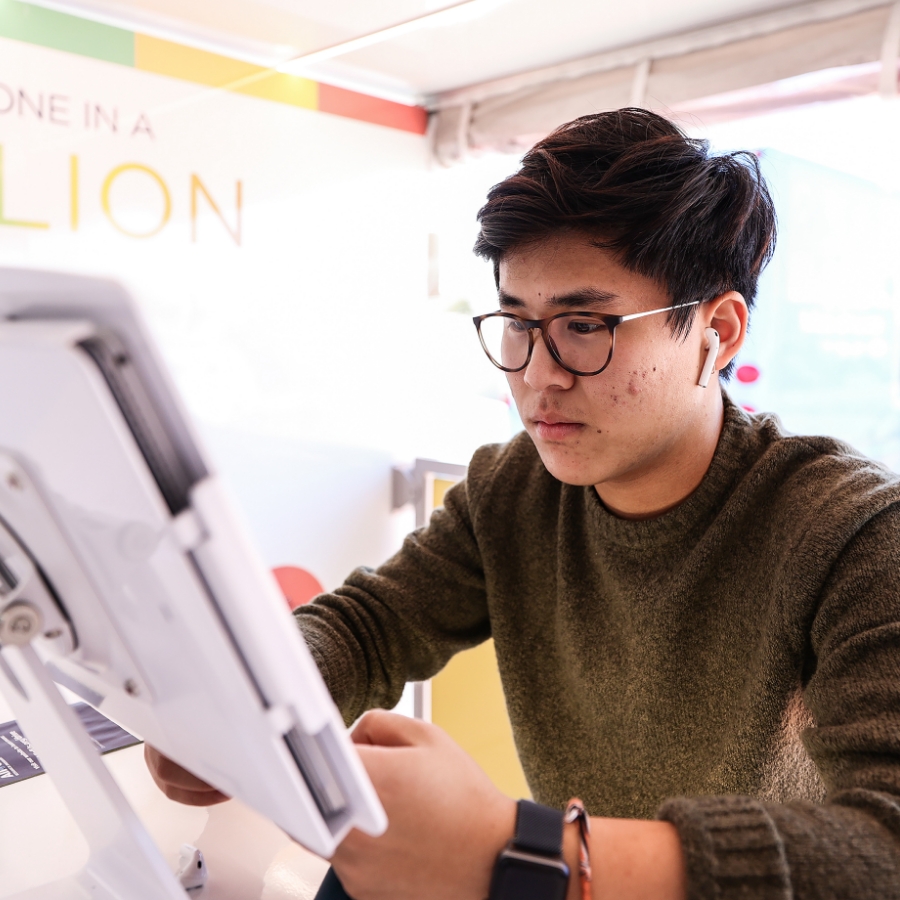
“I am a person who wants information to make informed decisions. You can’t make informed decisions when you’re in the dark.” – Keisha Bellamy
Keisha Bellamy, R.N., MSN, MBA, was a nurse for more than 15 years before joining the National Institutes of Health’s All of Us Research Program. Her professional experience in acute care, particularly during the pandemic, gave her further firsthand exposure to the burden of health inequities.
“COVID-19 definitely created another opportunity to see these disparities,” Keisha said. “We, as people of color, African Americans, have been essentially overrepresented when it comes to the impact of this pandemic.”
The All of Us Research Program offered an opportunity to contribute a range of health data, from blood and saliva samples to electronic health records and survey responses, that would help build one of the largest resources available to scientists. For Keisha, it was a natural fit. The program aims to engage more than one million people from diverse communities across the country to learn how our biology, lifestyle, and environment affect health.
“Demographically, I check a lot of boxes: female—we haven’t always been well represented in research—African American, and Army Veteran. And I would add another, geographical layer: I’m from rural North Carolina,” Keisha said. “So I definitely represent a lot of groups that are historically underrepresented in biomedical research.”
Keisha has been touting the All of Us mission as a volunteer Participant Ambassador through her work in health promotion and disease prevention at the U.S. Department of Veterans Affairs (VA) San Francisco Health Care System. She transferred there in 2018 after a decade with the VA Palo Alto Health Care System.
“I think the mission of All of Us to recruit underrepresented people in biomedical research is number one for me,” Keisha said. “In health care, we use language like ‘evidence-based,’ but if we were never really part of the study, the evidence was not based on us, so how useful is the evidence to us?”
Keisha’s interest in health care emerged at an early age. Growing up in the rural South, she witnessed the environmental and social impacts of the surrounding tobacco industry, as well as inadequate access to resources to modify lifestyle behaviors and increase access to health care. When she was just 16, her father died of kidney failure at age 53 after years of untreated hypertension. She also lost several family members due to untreated health conditions.
“Growing up there made me think about the impact of lifestyle choices as well as the barriers that the rural African American population experience and what I could do as a nurse to make a difference,” Keisha said.
Bridging the Information Gap
After high school, Keisha joined the military and served on active duty and then in the Army Reserve. From there, she completed her bachelor’s degree in nursing at Winston-Salem State University and then went on to pursue advanced degrees in nursing and health care.
Over the years, Keisha gained further experience in nursing and leadership through her job at the VA hospital in Palo Alto, CA. It was there that she first learned of All of Us and enrolled. Keisha had earlier joined a similar research program for U.S. Veterans, and in this video she explains her interest in All of Us.
“Any time I can lend my voice to encourage others to participate in research like this, I have no hesitation,” Keisha said. “I am a private person. I don’t even post to my social media accounts, but I feel so strongly about the importance of this program that I am willing to lend my face and my voice to the cause.”
Among the people Keisha encouraged to sign up was her younger sister. After years of hearing about the program, what convinced her sister to join was the chance to receive genetic ancestry, traits, and health-related information in return. The program began returning some of this information in 2020. To date, the program has offered genetic ancestry and traits results to more than 100,000 participants. Nearly 70,000 participants have received these results in the past year. The program plans to begin returning health-related DNA results later this year.
Today, Keisha is the health promotion disease prevention program manager at the San Francisco VA, fulfilling a longtime goal of providing information and prevention services related to smoking cessation, hypertension, and diabetes.
“This is what drew me to nursing in the beginning,” Keisha said. “I’ve seen the impact of lifestyle and environment on health. I’ve seen the psychosocial impact.”
From Bedside to Bench in Pursuit of Research Discoveries
After spending two decades in the health care field, Keisha continues to pursue higher education. She recently started her doctoral degree in nursing at Azusa Pacific University in Southern California. Her work as a research assistant in Palo Alto convinced her she wanted to pursue a career in research.
“My professional and personal goal is to become a researcher,” Keisha said. “I’m passionate about research. That hasn’t wavered; it’s been strengthened by my experiences.” Working with patients and fellow health care professionals heightened her awareness of the need to elevate the importance of scientific investigations.
“Basic science and core principles of research have been around for a long time, although this may not be commonly known among the general population,” Keisha said. “I do want to have discussions about the history of research with people of color.”
Validating Views, Combating Misinformation
Sometimes Keisha finds herself leading those discussions when she least expects it. There was an evening almost a year ago, after she finished a virtual yoga class. The instructor, a retired nurse, knew that Keisha had recently received her first dose of the COVID-19 vaccine and asked how she felt. The simple question opened up a wave of questions, comments, and concerns from students in the class about the safety of vaccines, among other issues. Keisha knew she had to switch on her professional skills when someone on their yoga mat mentioned Tuskegee.
The infamous syphilis study, which was initiated in 1932 in Tuskegee, AL—an area that had the nation’s highest syphilis rate—was led by the U.S. Public Health Service. The study enrolled 600 African American men, two-thirds of whom had the disease and were left untreated for research purposes. The experiment was designed to determine, through autopsies, what damage the untreated disease caused to the human body. For 40 years, the study continued without the participants’ consent or knowledge that they were being denied treatment.
In 1997, President Bill Clinton apologized to the nation for the government’s “deeply, profoundly, morally wrong” actions. “It was an outrage to our commitment to integrity and equality for all citizens,” Clinton said in a public apology from the White House that was attended by survivors of the study and families who had lost loved ones.
When that study was mentioned, Keisha knew that the African American students in her yoga class had deep-seated mistrust for government-led scientific research. “We need to validate the views of the African American community by acknowledging that horrible things have happened to a lot of people of color,” she said.
Keisha and the instructor partnered with an infectious disease specialist and held a follow-up virtual town hall about the COVID-19 vaccine to share information and answer questions and concerns. Dozens of community members joined the session. “It’s important to share with people the facts as they are open to receiving them.”
Whether she’s in a yoga class, at work, or at the supermarket, Keisha is always ready to listen and share research information. As an Army Veteran, a Participant Ambassador, and potential researcher with the All of Us Research Program, she hopes to change the future of medical discovery to benefit all. During National Women's History Month in March, Keisha continues to share the importance of inclusive, equitable health research.
“This research program is truly for all of us,” Keisha said. “It is going to move the discussion around precision medicine forward and I do not want the African American community to be left out of the discussion, left out of research and therefore left out of any scientific advances that our community could experience. Ask questions, engage in a conversation about the program—the future health of our community depends on our ability to be represented in medical research programs such as All of Us.”
Share your story with All of Us
If you would like to recommend someone to be featured, please submit a suggestion to All of Us.
Are you Interested in the All of Us Research Program?
- Learn about participation in the program.
- Learn about opportunities for researchers.


